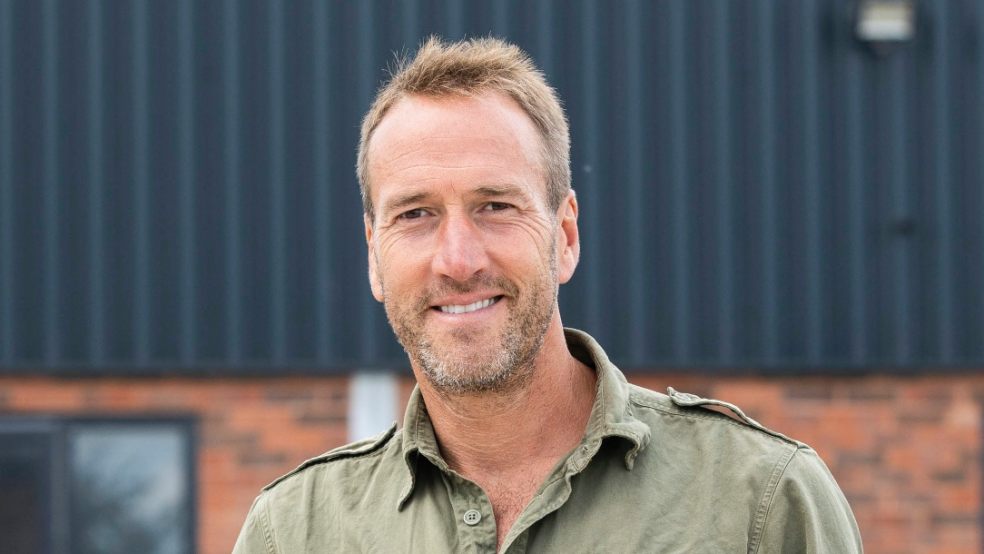
Ben Fogle says he saw lockdown as a sort of reverse expedition
There can’t be many people whose travel plans have changed more in recent months than Ben Fogle. Normally found yo-yoing from one end of the Earth to the other on various intrepid enterprises, the environmentalist, documentary maker and travel writer has had an unusual amount of time to reflect, given the circumstances of the pandemic.
He’s now backing a new farming initiative in partnership with dairy co-operative Arla, to highlight the importance of eco-friendly muck-spreading techniques, and produce a fragrance capturing the smells of the countryside. “Research from Arla has shown that 68% of us have been missing the countryside during lockdown,” says 46-year-old Fogle, “so they’ve bottled its scent – think meadows, moss and freshly-cut grass.”
He spoke to us about the wonders of the British countryside, post-pandemic positivity, and how to depoliticise the environment…
To what extent do you think we can live completely eco-friendly lives?
“It’s impossible for seven billion humans to live on Earth without having an impact, so we need to make changes collaboratively. It would be much better for 100% of us to make a 10% change than 10% of us to make a 100% change, and find a sustainable way of changing our lifestyles gradually.
“There’s a bridge metaphor that I quite like. The bridge of consumerism is broken, and we know that, so we’re trying to fix it. Some people think we should just blow the bridge up, but then we’re left stranded on either side of the river. We should build a second, much more environmentally-friendly bridge, and only blow up the other bridge when we’re finished.
“I think a lot of people feel disempowered by the scale of some of the things we need to do, but small changes add up. If everyone on the planet put a penny in a pot, do you know much money we’d make? That’s my approach to environmental messaging.”
The pandemic has caused a renewed interest in reconnecting with nature – have you been encouraged by that?
“We actually moved from London to the Chilterns just before lockdown, so we were fortunate enough to have access to rural spaces and a vegetable patch. We talk about this disconnect that a lot of people have with rural Britain, and a lot of people forget that rural Britain isn’t just national parks and campsites.
“I think it’s important that we see the true face of the countryside and I hope that post-lockdown, people will explore every facet – including farm life. Farmers get a hard time sometimes, but they were key workers during lockdown and as a nation, it’s important we champion them.”
You of all people could be forgiven for getting cabin fever – did you?
“I saw it as a sort of reverse expedition. Usually I pack my bags and head off into the wilderness; this time I didn’t pack my bags and closed the door. I’ve experienced isolation, I’ve experienced lockdowns, but they’re usually in remote corners of the world and often on my own, so to have it with my family and with the nation was very new to me.
“As much as it was a difficult time for many, we tried to make the most of the unrepeatable family time. I’m not going to be able to recapture those months with my nine and 10-year-olds [Iona and Ludovic] for many reasons. It was a different, but quite extraordinary experience.”
With your motivational speaker hat on, what would you say to people really struggling during the pandemic?
“As a species, we’re habituated to routine. There are those that struggled to adapt to the routine of lockdown, and to them I would say, as long as easing continues, get out there. Reconnect, get back in shape, engage with wildlife, engage with people – responsibly, obviously.
“Then there are those that became habituated to lockdown, who are slightly fearful of going out, and to them I would say, small steps. Like anything in life, you have to ease yourself in – you can’t just open your door and waltz out, it depends on your character.
“On both sides: Set yourself targets, set yourself carrots, to have something to be working towards. I worry that some of the nation either want to make too big a leap, or they’re too fearful even to make the first step.”
You’ve seen so much of the world in your career – is that because you’re an environmentalist, or did it make you into one?
“When you spend time in wild habitats you become acutely aware of cause and effect, and the impact your footprint has. When you pick some wood to make a fire, you see the marks that leaves behind, and the more that happens, the more you want to leave no trace.
“An expedition is like an artificial form of environmentalism, because you’re forced to reduce your consumption and value your resources. It doesn’t surprise me that Ellen MacArthur, who sailed around the world, became a keen environmentalist, because she spent all that time on her boat desalinating water, and having to rely on everything she had.
“One of the symptoms of modern commercialism is being a bit too wasteful. We don’t think about what’s going to happen because of fast food and fast fashion, but I think it is starting to change.”
Environmentalism has become more politicised recently. How do you reverse that?
“It has become politicised and I find that quite sad. I’ve been working in this medium for 20 years and have always remained apolitical, and it’s a shame people make assumptions according to your beliefs. It’s easy to throw up your hands and abandon all hope, but I’m not one of those people, so I just carry on.
“I think the mainstream press sometimes listens to a minority of voices on social media and, just because they’re very loud, assume they’re the mood of the nation. From my experience, I don’t think they are, so that saddens me. The press have a greater responsibility not to just listen to trolls and propagate – and almost validate – their voices.”
Having been to so many locations, do you have a favourite place?
“Great Britain, of course. I’m not just saying that, I love this country and I think we need to support our tourism industry, and all those places hit so hard by corona. I’ve always loved the whole British Isles, but to narrow it down – the Outer Hebrides. That’s where my career started 20 years ago.”
Image: Richard McCarthy/PA













